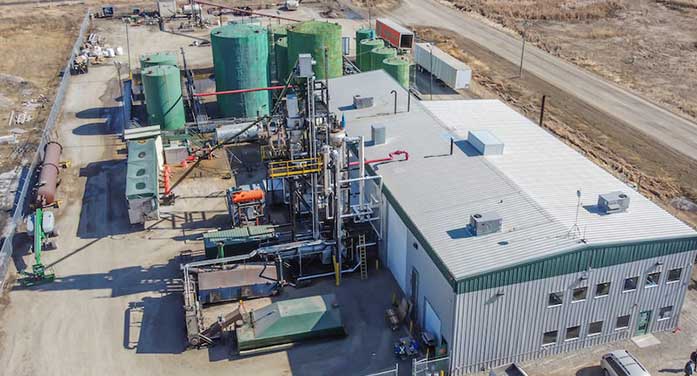 A recent Globe and Mail story about a firm developing garbage-to-biodiesel technology shows how continuing progress makes the global warming extremists’ most hysterically apocalyptic predictions, and their extreme absolutist ‘solutions,’ not only grossly wrong but already likely obsolete.
A recent Globe and Mail story about a firm developing garbage-to-biodiesel technology shows how continuing progress makes the global warming extremists’ most hysterically apocalyptic predictions, and their extreme absolutist ‘solutions,’ not only grossly wrong but already likely obsolete.
In the case of the company profiled, Cielo Waste Solutions Corp. is able to transform not just organic waste from households, but also seven types of plastics. The company intends to build plants in or near all major Canadian cities, and then expand into the United States.
In passing, the article mentions another proposed project in Quebec that will turn forestry waste into fuel, backed by the large Finnish multinational Neste Oyj.
In 2019, the venerable news program 60 Minutes showcased a U.S, firm, Xyleco, which takes cellulosic waste (e.g., paper, cardboard, food waste, yard and agricultural waste, sawmill waste, packaging) and turns it into biofuel. It also makes xylose, a sugar, usable as a low-calorie sweetener.
Many other waste conversion plants are found globally.
So climate change alarmists’ claims that nothing is being done, and that CO2 and other greenhouse gas emissions are escalating – and that the planet is going to fry in a decade or less – are not just ridiculous but belied by developments underway and others on the horizon.
And the solutions are often found by those the alarmists are trying to stop.

Cielo’s pilot waste conversion facility in Aldersyde, AB
For example, small modular nuclear reactors are efficient, versatile, self-contained, very safe, easy to transport, install and expand, and relatively inexpensive. Waste remains within the generator, which is self-contained and has a finite life. There are several manufacturers and the exact technology varies from firm to firm.
These reactors, which can be used to provide peak or levelling power, are part of the solution to make intermittent and unreliable energy sources such as wind, solar, tidal and wave power practical and viable. That would prevent some of the significant problems we’ve seen in major markets such as California and Texas.
 There could be some other major developments that will make today’s energy and global warming arguments entirely moot and obsolete. For example, there are now signs that hydrogen fusion energy reactors, possibly of more than one type, will start to actually contribute to the energy grid within a few years.
There could be some other major developments that will make today’s energy and global warming arguments entirely moot and obsolete. For example, there are now signs that hydrogen fusion energy reactors, possibly of more than one type, will start to actually contribute to the energy grid within a few years.
Soaring electric vehicle demand and supply were unforeseen, as were the steep declines in battery, solar and wind technology costs.
Similarly unpredicted was the shale revolution in the United States, which massively disrupted the petroleum world. Hydraulic fracturing, horizontal drilling, 3D seismic, multi-well drill rigs and advanced reservoir modelling analytics made the U.S. a net energy exporter; and natural gas is displacing dirty coal globally. The actual target of fracking is liquids – light oil – and gas is a welcome byproduct.
Trucks, planes and heavy machinery will use diesel for many years to come, so oil and gas will still dominate. The energy sector, and the economy generally, are morphing into something that’s not yet fully discernable.
Other advances and relatively small changes, such as more regional grid interconnections and more long-distance high-voltage direct current power lines, will help make energy delivery more reliable.
Things are changing faster, and for the better, than the absolutists recognize or acknowledge. We’re unlikely to fry, but these anti-capitalists will try their best to stop anything that doesn’t conform to their doom-loving vision.
Instead, be of good cheer: energy advances will help foster prosperity that’s cleaner and more sustainable, and not by government edict and compulsion.
Ian Madsen is a senior policy analyst with the Frontier Centre for Public Policy.
Ian is a Troy Media contributor. For interview requests, click here.
The views, opinions and positions expressed by columnists and contributors are the authors’ alone. They do not inherently or expressly reflect the views, opinions and/or positions of our publication.
© Troy Media
Troy Media is an editorial content provider to media outlets and its own hosted community news outlets across Canada.

